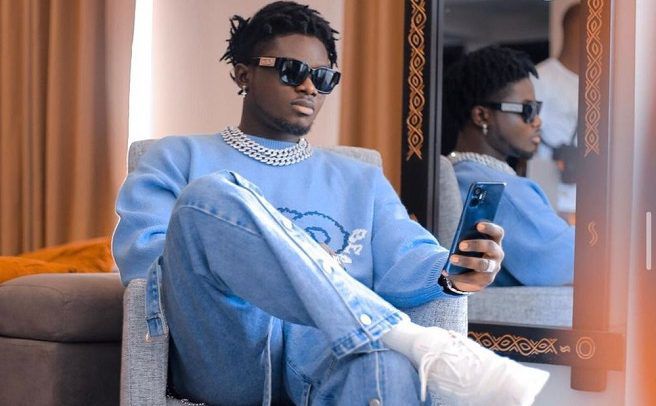The escalating tension between Ghanaian singer Kuami Eugene and social media personality Dennis Anane, better known as Achipalago, has become a subject of public discussion, fueled by accusations of professional snubbing and online attacks. The discord reportedly stems from a failed attempt by Achipalago to initiate a musical collaboration with Kuami Eugene, leading to a series of public exchanges that have exposed underlying resentment and professional differences between the two personalities. Achipalago publicly accused Kuami Eugene of disrespect for refusing to speak with him over the phone, painting the singer as arrogant and dismissive. Kuami Eugene, however, countered this narrative, explaining that he was engaged in a personal phone call with his mother at the time of Achipalago’s call, making it impossible to switch over and discuss a potential collaboration. This seemingly minor incident ignited a larger conflict, revealing deeper tensions between the two.
Kuami Eugene’s account of the incident provides a different perspective on the exchange. He recounted being contacted by Achipalago through a radio presenter who was driving him back to his hotel after an interview. Achipalago, having learned of Kuami Eugene’s presence at the radio station, requested to speak with him about a potential song collaboration. However, Kuami Eugene declined to interrupt his ongoing call with his mother, a decision that apparently triggered Achipalago’s subsequent online outburst. According to Kuami Eugene, the radio presenter also informed Achipalago that he was occupied and would return the call later, a message that seemingly went unheeded. This miscommunication, coupled with Achipalago’s perceived impatience, appears to have laid the groundwork for the escalating feud.
The core of the disagreement seems to revolve around differing perceptions of professional etiquette and personal boundaries. Achipalago interpreted Kuami Eugene’s refusal to take his call as a sign of disrespect, particularly given the possibility of a collaborative project. He likely viewed it as an opportunity for Kuami Eugene to display professional courtesy and prioritize a potential business venture. Kuami Eugene, on the other hand, prioritized his personal commitment to his mother, viewing the interruption as inappropriate and potentially insensitive. This difference in perspective underscores the complexities of navigating professional and personal boundaries, particularly in the age of instant communication.
The fallout from this incident extends beyond the initial phone call, spilling over into the realm of social media and public perception. Achipalago’s public accusations of Kuami Eugene’s alleged arrogance and disrespect have amplified the conflict, attracting attention and fueling online discussions. Kuami Eugene, in turn, has expressed his unwillingness to collaborate with Achipalago, citing his perceived verbal attacks and aggressive behavior following the initial incident. He has even expressed concern for Achipalago’s health, suggesting that his anger might have negative consequences. This public back-and-forth has escalated the situation, creating a rift that seems increasingly difficult to bridge.
The ongoing feud between Kuami Eugene and Achipalago highlights the challenges of navigating professional relationships in the public eye, particularly in the age of social media. The ease and immediacy of online communication can exacerbate misunderstandings and amplify minor disagreements into full-blown conflicts. In this particular instance, a seemingly trivial incident involving a missed phone call has escalated into a public feud, fueled by accusations, counter-accusations, and online exchanges. This situation serves as a reminder of the importance of clear communication, mutual respect, and the potential pitfalls of airing grievances in the public domain.
Furthermore, this incident underscores the complexities of managing professional and personal boundaries in a constantly connected world. While the line between professional and personal life can often blur, the expectation of immediate availability can lead to misunderstandings and conflict. Kuami Eugene’s decision to prioritize a personal call over a potential professional engagement, while seemingly reasonable, highlights the ongoing debate about appropriate professional etiquette in the digital age. This incident offers a valuable lesson on the importance of establishing clear boundaries and managing expectations in both personal and professional interactions, particularly when navigating the complexities of the entertainment industry and the pervasive nature of social media.














